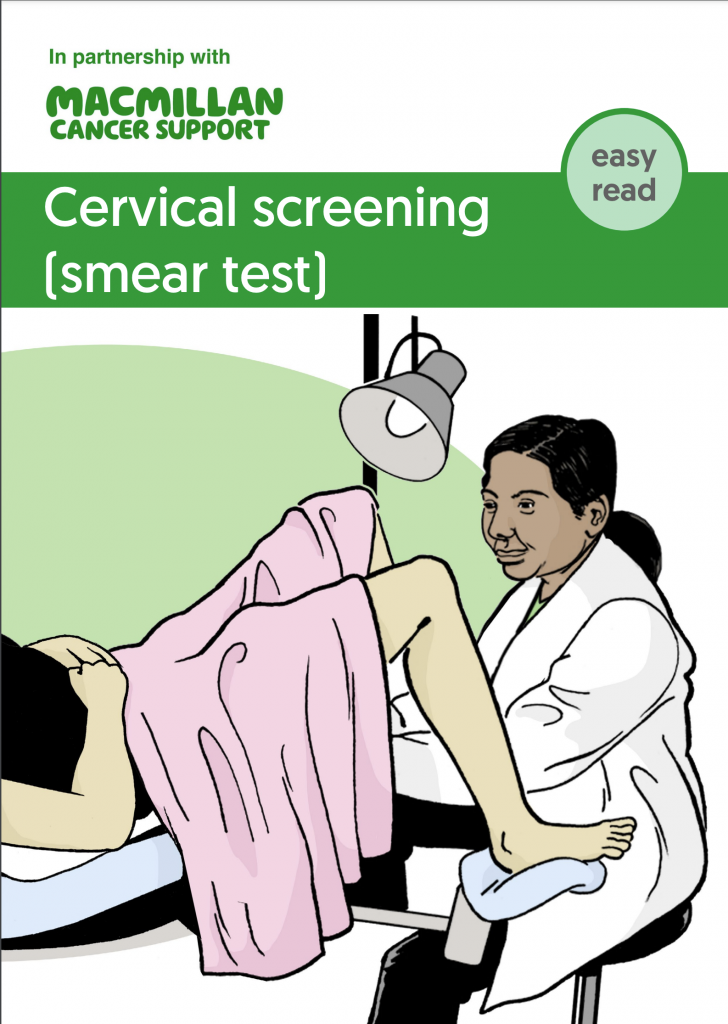Cervical Screening Saves Lives
Nearly all cases of cervical cancer are preventable.
A Preventable Disease
Sadly, there are 850 deaths annually in this country. That’s two lives lost every day.
But it doesn’t need to be like this.
Nearly all cases of cervical cancer – 99.8% – can be prevented.
Regular cervical screening – or smear tests – are the best way to spot the early signs of cervical cancer and stop it before it can develop.
Cervical Screening Saves Lives.
Scroll down to find out more, or use the quick links to jump to different sections.
Cervical Cancer and Symptoms
The cervix is part of the female reproductive system, and if abnormal cells grow uncontrollably in the cervical lining, they can eventually form a tumour.
If this isn’t spotted and treated early, the growth can continue to spread and even move into other parts of the body.
Symptoms can include:
- Unusual vaginal bleeding
- Pain or discomfort during sex
- Vaginal discharge
- Pain in and around your pelvis
If you get any of these symptoms, arrange to see your GP as soon as possible.
Not everyone will develop all these symptoms – or any at all – which is why early detection through screening is so important.
The Screening Programme
The NHS regularly offers us screening for a range of illnesses. These are conditions where reliable tests can detect diseases in their early stages and where treatment is most effective. Screening protects us from avoidable illnesses from before birth into old age and every stage between.
Every woman or person with a cervix will be invited for their first cervical screening in the months before their 25th birthday.
Until the age of 49, you’ll be invited back every three years. From 50, the intervals increase to every 5 years. This is because your risk of developing cervical cancer decreases significantly after this age. Routine screening stops when your turn 64.
How Cervical Screening Works
Specifically, the test looks for signs of human papillomavirus or HPV.
HPV passes through skin-to-skin contact, usually during sexual activity between people of any gender. Most sexually active people will encounter HPV at some point in their lives, and often it is harmless.
However, some types cause genital warts, and fourteen high-risk types can cause cervical cancer.
Risk of cervical cancer is much lower before the age of 25 and after the age of 64.
If you have never been sexually active, your risk may be lower, but that doesn’t mean there is no risk at all.
What to expect
Appointments take place in GP practices and normally take no more than 10 minutes.
We know that going for a smear can make people feel anxious, uncomfortable or scared.
Our Practice teams, and the Nurses in particular, are there to put you at ease, talk to you, listen to any concerns and answer your questions.
You’ll be given privacy to undress from the waist down and something to cover up while you get ready.
The test itself involves a speculum being inserted into your vagina and a small sample of cells taken with a brush.
Although it may be uncomfortable, it shouldn’t hurt. Your nurse can suggest things to help, like changing positions or using a different speculum.
After the test, you’ll be given privacy to get dressed, and then you’re free to go.
Tests
There are 3 possible outcomes from your screening:
- No HPV was found. You will be invited for your next screening in 3-5 years.
- There are signs of High-Risk HPV, but the cells are normal on analysis. You’ll be invited for another screening in a year. In most cases, High-Risk HPV clears up within 2 years.
- Signs of HPV and abnormal cells. You’ll be referred to colposcopy – a hospital appointment where your cervix can be examined in more detail.
During a colposcopy, a biopsy sample may be collected for testing. The results can take 4 to 8 weeks.
Having abnormal cells does not mean you have cancer. It means some cells could develop into cancer if not treated.
Your results and the next steps—often either monitoring or removal of the cells—will be explained to you.
Treatment
If your biopsy shows you have cervical cancer, then your specialist team will discuss what this means, what the options are, and how you can be supported.
Cervical cancer is often treatable.
Treatment options will depend on the size and type of cancer, where it is, if it has spread and your general health.
Surgery is often the most common treatment if the cancer is found early.
Depending on your situation, radiotherapy or chemotherapy may also be part of your treatment.
All the way through, a specialist team will support you by explaining the treatment options, benefits and side-effects, and with regular check-ups during and after your treatment.
Macmillan Cancer Support
Macmillian is an organisation dedicated to supporting people living with cancer.
In addition to research, fundraising, and professional research, MacMillan offers community connections and support—both online and in the real world.
Explore everything MacMillan offers with the links below or call their free helpline on 0808 808 00 00.
The Eve Appeal
You can visit The Eve Appeal website, call their helpline on 0808 802 0019 or email nurse@eveappeal.org.uk.
Cancer Research UK
Their services include:
- Nurse helpline: 0808 800 4040
- Ask a Nurse
- Online chat forum
- Find a clinical trial
Marie Cure
You can visit mariecurie.org.uk, call their helpline on 0800 090 2309 or learn about their patient services.
Your Views and Experiences
In 2022, we ran a project to understand your thoughts on cervical screening. We aimed to create campaigns that provided the information you wanted and made screening decisions easier.
Over 600 people participated. Key findings included:
- High preventability was the most compelling message.
- Nurses often eased appointment anxieties.
- Embarrassment and anxiety were significant barriers.
- You wanted more information on HPV testing.
- There was a lack of information for those not sexually active or not having sex with men.
- Preference for hearing from doctors, nurses, and patients.
We created videos for our cervical screening and cancer awareness projects based on your feedback.
Now, we want to understand more about the barriers to screening, such as appointment booking, scheduling logistics, test uncertainty, or fear of results.
By hearing your thoughts, experiences and ideas, we can look at what improvements can be made in the future.
We’d like to keep in touch for further opinions, surveys, or events. Taking part is voluntary, confidential, and won’t affect your medical records.
If you want to join our Cervical Screening Patient Group, please follow the link below to sign up.


